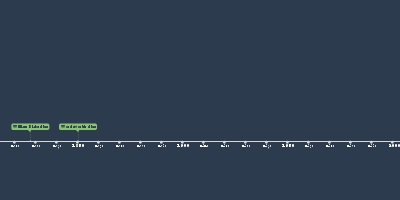1 ene 1861 año - Germ Theory
Descripción:
The germ theory of disease is the currently accepted scientific theory for many diseases. It states that microorganisms known as pathogens or "germs" can lead to disease. These small organisms, too small to see without magnification, invade humans, other animals, and other living hosts. Their growth and reproduction within their hosts can cause disease.By the early nineteenth century, smallpox vaccination was commonplace in Europe, though doctors were unaware of how it worked or how to extend the principle to other diseases. Similar treatments had been prevalent in India from just before AD 1000. A transitional period began in the late 1850s with the work of Louis Pasteur. This work was later extended by Robert Koch in the 1880s. By the end of that decade, the miasma theory was struggling to compete with the germ theory of disease. Viruses were initially discovered in the 1890s. Eventually, a "golden era" of bacteriology ensued, during which the germ theory quickly led to the identification of the actual organisms that cause many diseases.
Añadido al timeline:
fecha:
1 ene 1861 año
Ahora mismo
~ 164 years ago
